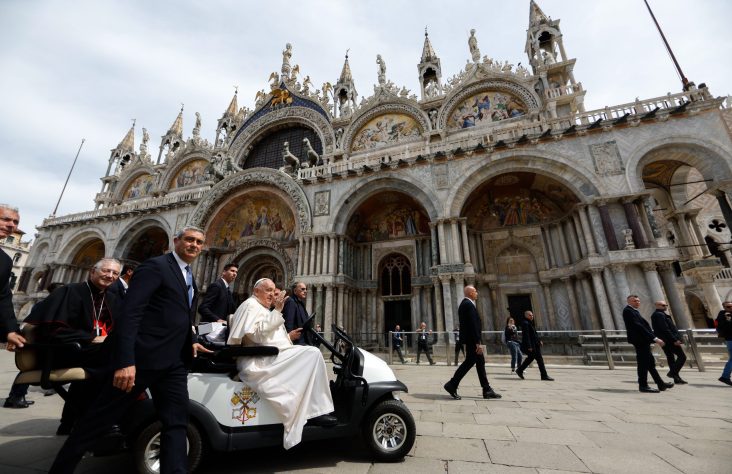April 20, 2016 // Uncategorized
A look at our reward
Fifth Sunday of Easter
John 13:31-33a, 34-35
This weekend’s reading tells the story of some of the missionary activities of Paul and Barnabas. Although eventually they parted, Paul and Barnabas, Paul’s disciple, visited several places in Asia Minor that were prominent cities in the Roman Empire of the First Century A.D.
Ancient traditions see all the Apostles as missionaries, most of whom went far and wide to proclaim the Gospel.
Acts concentrates on many of Paul’s efforts in missionizing. The readings from Acts are more than a travelogue. They are lessons about the faith of Paul and Barnabas, and they reveal the conditions in which these two great figures in early Christianity lived and taught.
As they spoke to Christians in the cities that they visited, Paul and Barnabas warned these followers of Christ that hostility, and difficulties, often fearful difficulties, faced those who love the Lord. Paul and Barnabas themselves met hostility and endured difficulties, so their warnings hardly came from paranoia or as a strategy to build regard for themselves by fabrication.
The culture of the Roman Empire was absolutely hostile to the values of the Gospel. The political order was becoming hostile as well.
Yet Paul and Barnabas were undaunted. They continued to move from city to city, from Christian community to Christian community, to reassure believers in Christ. Despite the risks, and the more than occasional rejections, their faith inspired them and impelled them.
For the second reading, the Church this weekend offers a passage from the Book of Revelation. This book, the last book of the New Testament in the translations and versions that have been used for centuries, is highly poetic and symbolic. It is moving and strikingly beautiful in its imagery, but often its symbolism is so involved, or so unique to the First Century, that understanding the book is not easy without reading scholarly commentaries along with the text itself.
In this reading, the vision is of heaven, symbolized by the holy city of Jerusalem, but a transformed Jerusalem, and of God. It is a look into eternity and to the reward promised to those who obey God.
St. John’s Gospel is the source of the last reading. This is not a resurrection narrative, but it is strongly reminiscent of the resurrection, and of the Lord’s death on Calvary.
Jesus obliquely refers to the crucifixion. He refers to rising from the dead. Eternal life is an option for humans who follow the Lord in obedience to God, in sacrifice, and in faith. With Jesus, the faithful will die but also rise to eternal life.
Reflection
A month ago the Church called us, with joy and the deepest faith, to celebrate the resurrection of Jesus after the terrible event of the crucifixion.
Gradually, gently, but unrelentingly, the Church has called upon us personally to respond to Jesus, to bond ourselves with the salvation brought to us by Jesus.
This weekend’s readings proclaim the sacrificial death as well as the rising of Jesus from the dead, but they also call upon us to respond by following the Lord.
As the second reading from Revelation says, eternal life with God in heaven will be our reward.
Following Jesus is more than a verbal announcement, it is actual involvement in the Redeemer’s mission by living lives of justice, charity, and service. Christianity is not about ivory towers.
As Pope Francis so often insists, it is about living in our homes, in our jobs, and in our contacts with others.
Such was the teaching of Paul and Barnabas, who urged fortitude in living the Christian life, but who promised a marvelous reward, in this life and in the hereafter.
The best news. Delivered to your inbox.
Subscribe to our mailing list today.





